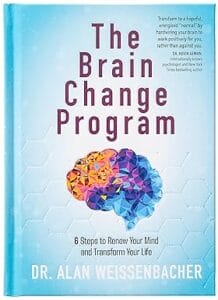Do you feel like you are under siege from life? Job problems, relationship problems, health problems, loss, and bad news from all quarters? Do you feel like depression and anxiety are constant companions, and you are just waiting for the next shoe to drop? Do your circumstances make it seem like God is against you or that God is not love?
I have been feeling under siege. Kids with medical problems followed by an upstairs plumbing leak that wrecked stuff both upstairs and downstairs. Then, a week later, there was another unrelated leak that turned our downstairs into a wading pool. Once the damaged areas were removed, we found a 3rd, smaller leak. Oh, and now that the walls are open, is that severe termite damage over there? Some 2x4s are completely eaten through. How is this wall even standing? The mold inspection found mold in areas unrelated to the leak. We now need to repair those areas too. So now my family is living out of hotels and in the living rooms of generous friends while things get fixed.
Right now, I am tempted to get depressed, wondering how many curveballs will be thrown my way and what new problem will surface. This, however, is not living in faith. God says to have joy in trials (James 1:2-4) and to rejoice always (Philippians 4:4). How do I control my thoughts (2 Cor. 10:5) in the tough times of life so that I can live faithfully and positively?
We only see what we are trained to see, and then that is all we see. This is the danger of dwelling on problems.
The paths in the brain we most often use become stronger, like exercising a muscle. These paths become the highways that the brain automatically takes whenever life is challenging. Eventually, we create a whole mental framework out of our most-used brain paths that organize information about our world. We end up training our brains to only see certain things. And if we dwell on problems, soon, all we see are the problems.
The depressed can end up only noticing depressing things: seeing only the negative about themselves, the world around them, and the future – thinking that things won’t get better.
This is one reason why it is important to praise when things are rough, so the rough doesn’t end up forming our brains into a rut that is challenging to get out of. But what if we are already in that rut with our brains seeing only the problems and experiencing ANTS – automatic negative thoughts?
First, we need to work on our focus. We must deliberately turn our brains away from the negative and focus on the positive to build up some strong brain pathways for hope and faith. If we repeat this enough, hope and faith will become the large highway that the brain will automatically turn to, and the depressed highway will weaken. It isn’t easy and takes work, but the work is worth it, and it gets easier over time. Old pathways are worn and easy to tread. You must continually choose a new path before it becomes the easier one to walk. Sometimes, we meet people who always see God working in their lives. Are they just more blessed? No, those people have trained themselves to see God working. With training, you can see where God is working in your life, too.
Do I focus on all my problems that are happening, seemingly one after another? Or do I look at it as God helping us take care of all the problems at once? It would be worse if we fully repaired one leak, then had to demolish stuff again for a second one, then demolish again for the third, and then again for termites. Could all these problems be God’s way of blessing us with only needing one large repair job instead of several smaller ones and annoying the insurance company with claim after claim? Insurance companies don’t appreciate it when you join their frequent flier program.
Second, I find that it helps to change the way I pray. Instead of praying focused on the problem, I pray focused on the solution. For example, instead of praying, “God, don’t let me be depressed,” say, “God, help me to have joy.” It’s like I tell my clients, Don’t pray, ‘God keep me away from alcohol.’ Instead pray, ‘God help me be sober.’” The first prayer focuses on the problem, potentially strengthening the problem highway in the brain. The second prayer focuses on the good, hopefully turning brain paths in that positive direction. The prayers are for the same thing; one looks backward at the problem, and the other looks forward to the solution. And we all know from Lot’s wife how looking backward turns out. Instead, pray forward. It is good for your brain.
And third, if we are in a rut where we can’t see the good things that could break us out of the rut, we need to surround ourselves with so many positive messages so that some will stick and change our brain in a good direction: deliberately remembering times God answered prayer (and maybe we need to write it down when God does answer so we don’t forget it), memorizing positive Scriptural truths, and forcing ourselves to find things to be thankful for and then dwelling on those things. Set a timer if you need to! Think about being thankful or this verse for a certain number of minutes and keep at it.
Right now, in my stormy season, the verse I am continually returning to is Isaiah 41:10.
“Do not yield to fear, for I am always near. Never turn your gaze from me, for I am your faithful God. I will infuse you with my strength and help you in every situation. I will hold you firmly with my victorious right hand.”
May this verse give you hope, too.
Written by Dr. Alan Weissenbacher
Become the person God created you to be.
When we think of self-improvement, our minds often turn to dieting, exercise, or productivity hacks. But without understanding how the mind works, these improvements are unlikely to stick.
In The Brain Change Program, Dr. Alan Weissenbacher merges neuroscience with biblical wisdom and leads you through his six-step program to achieve lasting, meaningful change. He shares actionable, lifelong strategies and tools to help you:
-
unlock the mysteries of your brain,
-
gain control over destructive thoughts and behaviors,
-
redesign your prayer life,
-
guide yourself into right thinking, and
-
cultivate Christlike character.
Set foot on a radical journey of self-discovery, where joy, fulfillment, and spiritual transformation await.
This is an updated edition of a post originally published on Carol McLeod Ministries
Featured Image by Gerd Altmann from Pixabay









Comments are closed.